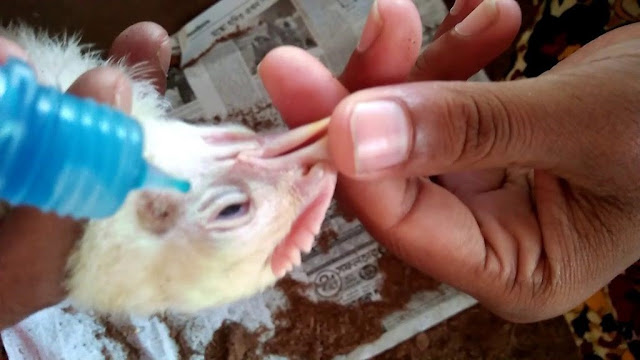Things to note about vaccines:
- Transport the vaccines in well-insulated cool boxes containing ice packs to keep the temperature constant. Administer vitamins a day to vaccination and a day after to minimise stress.
- Never mix vaccine and vitamins.
- Do not vaccinate sick birds.
- In case of any ongoing antibiotic flock treatment, withdraw the treatment two days prior to vaccination and don't give any antibiotic two days after vaccination.
- Minimise vaccine reactions by reducing exposure time after preparation.
- For vaccines administered through drinking water, the drinking time should be at most two hours. Discard the remaining water, wash the drinkers and provide fresh water mixed with vitamins.
- Store the vaccine at +2 to +8°C .Never store in the freezer.
- Never use chlorinated water during vaccination. Use powdered skimmed milk or chlorine neutralizing tablets to dechlorinate.
- Always vaccinate your birds early in the morning or late in the evening.
- Deny your birds water for two hours before vaccination to make them thirsty so that they take the vaccine in the shortest time possible.
- As a rule when mixing vaccines mix it in 40% of the daily water intake. Example if they take 10 litres per day mix the vaccine in 4 litres of water to be taken within 2 hours.
- When you buy the vaccine go straight to the farm without wandering about. Ensure there is enough ice block wrapped together with the vaccine.
- When you buy the vaccine check the batch number and expiry date.
- Always invite a vet when doing the injectable vaccine to ensure the right site of injection.
- Strictly follow the vaccination programme never assume.
- Each vaccine is designed for a specific route of administration. Use only the recommended route.
- Protect vaccines from heat and direct sunlight.
- Most vaccines are living, disease-producing agents. Handle them with care.
- After vaccinating, burn or disinfect all opened vaccine containers to prevent accidental spread to other poultry.
This is where
we will be ending our discussion for today.
Do you have any
questions or other forms of contributions, kindly use the comment section below
for all your contributions.
You are also
encouraged to kindly share this information with your loved ones you feel might
benefit from it as we cannot reach everyone at the same time.
Thank you!!

Comments
Post a Comment